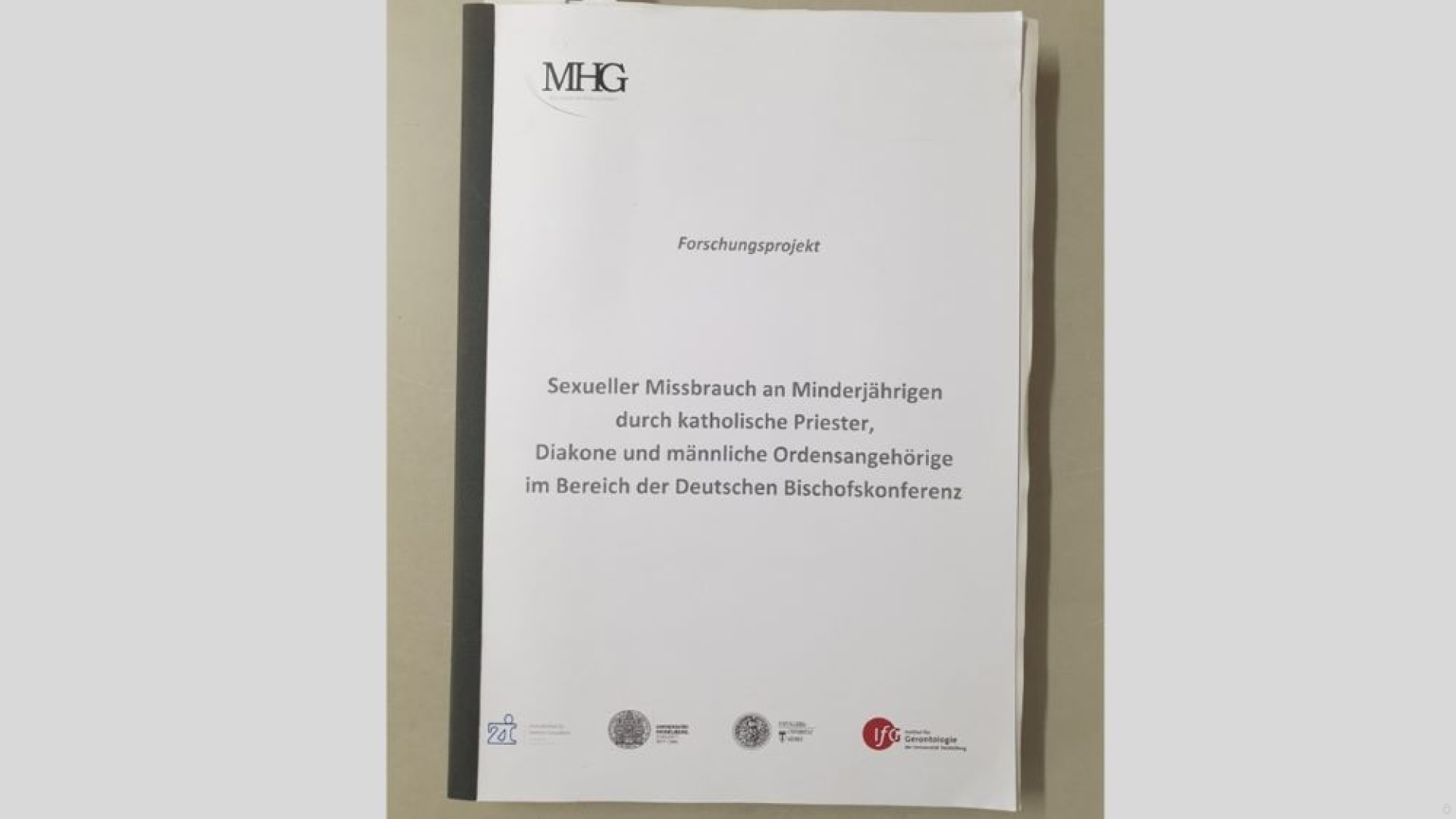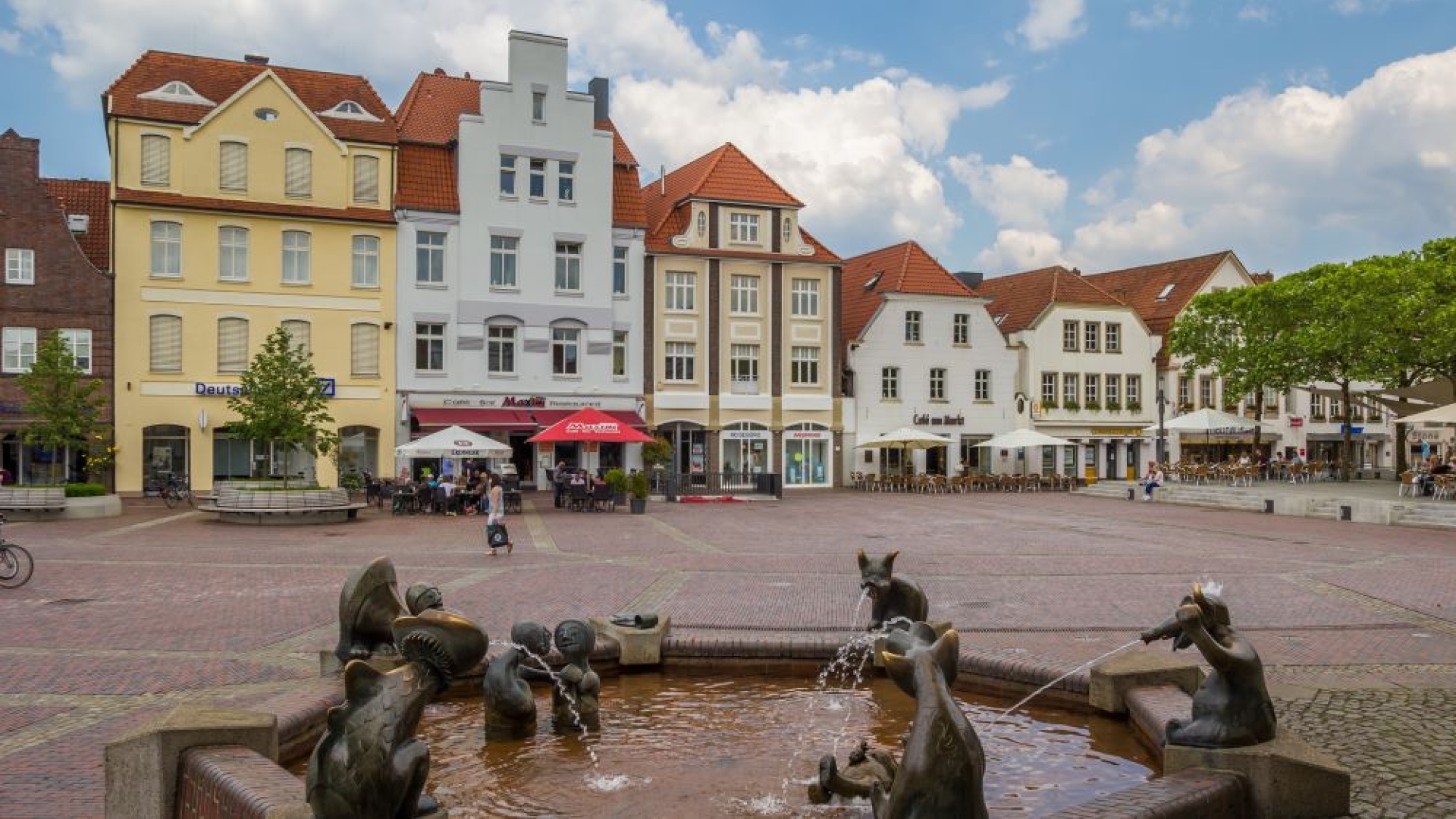The Synodal Path to a German National Church (4): The MHG Report

Le fameux rapport MHG
The Würzburg Synod, held between 1971 and 1975, affected the Church in Germany down to its operations, in particular through the joint Conference which regularly brings together the German Bishops’ Conference (DBK) and the Central Committee of German Catholics (ZdK). This was the way of prolonging this synod, which today is inspiring the “synodal path” that will open on December 1, 2019.
The decision to launch a “synodal path” was made in the wake of the scandal of the abuse of minors committed by clergymen and religious. This is what Cardinal Reinhard Marx, President of the German Episcopal Conference, continues to repeat. But it is necessary to examine the sequence of events to understand their origins.
The MHG Study
Following the moral scandals that shook the Church in Germany, an interdisciplinary research project was entrusted to researchers from the universities of Mannheim, Heidelberg, and Gießen (hence the name of its report: “MHG”). Led by Harald Dressing, a forensic psychiatrist, the study group worked from July 1, 2014 to September 24, 2018 from data provided by 27 German dioceses.
The result is recorded in a 350-page report, bringing together the efforts of experts in criminology, psychology, sociology, and forensic psychiatry. There is a 15-page summary published by DBK, translated into several languages. The purpose of this study is to “determine the frequency of abuse, describe the forms,...and identify ecclesial structures and dynamics which could promote the events of abuse.” This point is crucial.
A large part of the report is devoted to the analysis of crimes and offenses committed against minors. Then a chapter of recommendations indicates the main lines that today inspire the synodal path. The bishops had to pay a whopping €1,089,312.50 (excluding VAT) for this advice.
The Structure of the Church Questioned
The experts commissioned by the German bishops think that the problem is primarily structural, and that the operations of the Church must change, and be held responsible: “The results of the study clearly show that the sexual abuse of minors by religious of the Catholic Church is not only due to the misguided behavior of isolated individuals, but that attention must also be given to the risky and structural characteristics specific to the Catholic Church, which favor the sexual abuse of minors or make it more difficult to prevent.”
The MHG report actually aims at the very morality of the Church: “The results of the study make it necessary to examine the meaning of the views of Catholic sexual morality on homosexuality in the context of the sexual abuse of minors. The fundamentally opposing attitude of the Catholic Church with regard to the ordination of homosexual men is urgently to be reconsidered...An open atmosphere and promotion of tolerance must be created.” Including for the passions of ignominy and the sins that cry to heaven?
Finally, the icing on the cake, the study attacks the power of orders: “The transformation of clerical structures of power through a fundamental reflection on the sacred ministry of the priest and the way he sees his role. Sanctioning guilty individuals, publicly regretting their actions, paying financial compensation to victims, establishing prevention concepts are necessary, but not sufficient measures...These steps are even apt to consolidate the structures of clerical power as they only target the symptoms of abnormal development and thus prevent reflection on the fundamental problem of clerical power.”
The German Bishops’ Conference in Fulda
At their annual meeting, the German bishops studied the MHG report. They immediately made decisions concerning prevention, the management of personal files, the compensation of victims, but also formation in the seminaries and the dioceses. In their press release, they added this paragraph which contains in germ the synodal path:
“Challenges specific to the Catholic Church, such as questions on the celibate way of life of priests and various aspects of Catholic sexual morality, will be discussed in a transparent discussion process involving experts from various disciplines.” Six months later, the process resulted in a project ripening in the offices of the German episcopate.

La ville de Lingen
Plenary Assembly of Lingen
Between two sessions, the German Episcopal Conference organized a study day in Lingen, Lower Saxony, on March 13, 2019. Its theme was “The question of a break: on the global issues that are currently arising.” It was animated by four speakers who explained the objectives to be achieved, according to the three approaches already presented in the MHG study and taken up by the bishops.
Church and Clerics Indicted
Julia Knop, professor of dogmatic theology at the University of Erfurt, said: “You have put three subjects on the agenda: power in the Church, celibacy as a mandatory form of priestly life, and the sexual morality of the Church. The MHG study identified the systemic risks of the institution of the Catholic Church, specifically the Catholic factors, which favor such violence, such abuse of power, and complicate its punishment.” It is a gain for her: “Power - Celibacy - Sexual Morality: None of the three questions you face today is new. But what is new is that we can no longer deny their destructive connection.”
Philipp Müller, a priest since 1991 and professor of moral theology in Mainz, ponders the life of a priest today, highlighting his loneliness, his difficulties, his work overload. He proposed the ordination of viri probati, married men of mature age. It would be a matter of choosing men over 50 years of age and giving them a small ministry - a kind of intermediary between the married deacon and the priest.
Professor Gregor Maria Hoff, who teaches fundamental theology at the University of Salzburg, spoke of the “sacralization of power.” His lecture claims to demonstrate the existence of a “sacralization trap” whose victims would be religious powers in general, the priesthood and the Church in particular. Cardinal Marx summarizes it thus: “The power of religion is thus derived from the sacred sign to its mediators [priests]. A circle of initiates emerges, which protects its alleged claim to power and instrumentalizes it to maintain its own status.” Hence the need for “division and the clearly regulated control of power. There is a considerable need for the development of ecclesial structures, to which we will continue to respond.” Pope Francis, who regularly denounces clericalism as the cause of all evils, would certainly find himself at home in this kind of consideration.
Catholic Morality Under Indictment
Finally, Eberhard Schockenhoff, professor of moral theology in Fribourg, attacked the sexual morality of the Church. His conference showed a deep contempt for revealed morality, perfect evangelical morality, as the Church has always defended it. This theologian, who is a priest (!), began by attacking St. Augustine: “Assuming that the corruption of human nature by original sin is passed on to the descendants by means of carnal procreation, Augustine paints a poisoned picture of sexuality.” Then he believes he has discovered “inconsistencies and contradictions in his thinking. For how can parents who, through baptism, have been cleansed from the stain of original sin, nevertheless be able to transmit it to their descendants in the act of procreation?” It is impossible to deny - or ignore - the nature of original sin. This is nothing other than the Pelagian heresy, and the denial of the transmission of original sin since Adam to all generations, yet revealed by Holy Scripture (see Rom. 5:12).
Using his own logic, Schockenhoff pleads for a genuine reform of morality, which supposes the abandonment of past morality, considered out-of-date and unsuitable. The new morality must reflect “a more open adaptation of the understanding of changes in living conditions and the evolution of human scientific knowledge on the meaning of human sexuality.” Does this mean that Freud or his modern imitators know more about morality than St. Augustine?
The speaker maintains consequently that, if “monogamous marriage, contracted on a permanent basis and with the firm will of fidelity for life, is the best vital and institutional framework,” the fact remains that, “in order to be able to credibly refute the reproach of a discriminatory practice with regards to persons of the same sex..., it is necessary to unconditionally recognize homosexual partnerships and not to morally disqualify the sexual practice that takes place therein.” How can a priest of Jesus Christ, in the presence of bishop-successors of the apostles, hold a position that justifies and legitimizes vice and sin? And to think that he has been teaching moral theology for thirty years ...
Cardinal Marx’s Announcement
At the end of this plenary session of the DBK, Cardinal Marx, in a press conference, made a point of recalling the actions carried out since the launch of the MHG project, as well as his participation in the summit on abuses at the Vatican, last February. Then he announced a special procedure, which claims to be an answer to the issues raised by the speakers:
“The Church in Germany is at a turning point. The Church needs synodal progress...The Würzburg Synod and the discussion process of recent years have prepared the ground. We have decided unanimously to follow a binding synodal path as a church in Germany, which makes possible a structured debate to take place within an agreed time, in collaboration with the Central Committee of German Catholics. We will create formats of open debate and engage in procedures that allow the responsible participation of women and men in our dioceses. We want to be a Church that listens.”
Three forums have been created to discuss the following topics: “Power, participation, separation of powers”; “Sexual morality”; and “the Path of Priestly Life.” A fourth forum dedicated to the place of women in the Church will be added two months later.
This “synodal path” established on such premises is truly a path for a German Church detached from the true Church.
The “synodal path” about to open is based on revolutionary premises. The Church, through the voice of her hierarchy, “listens” to the people of God so as to reform herself, calling into question her divine constitution, especially the power of orders, but also her morality and her preaching. The proposed solutions pick up the abjectly human, naturalistic and Pelagian visions. The synodal path continues the dynamics of the Würzburg Synod which wanted to incarnate the Second Vatican Council in the German Church. An infernal process that has not finished destroying faith, morality, and the Catholic Church herself. At the risk of opening the way to a schism in the true Church.
(Sources : dbk.de/wikipedia -FSSPX.Actualités - 21/11/2019)





